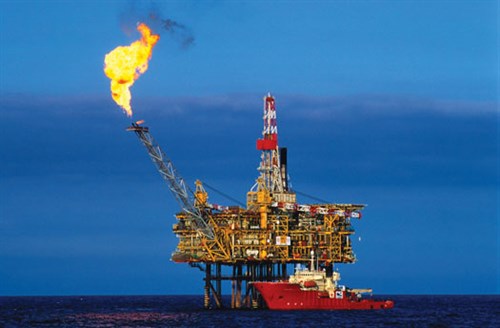Industry Focus: EastMed pipeline faces technical challenges, competition
The outcome of the EastMed pipeline project—a planned, 1,900-km (1,180-mi), subsea pipeline that would supply Europe with 9 Bm3y–12 Bm3y of natural gas from the Eastern Mediterranean—is being closely watched by many on the global stage. If built, it would be the world’s longest and deepest subsea gas pipeline and provide considerable energy resources to European markets.
Partners eye fast track to 2025. Greece, Cyprus and Israel signed an agreement in January 2020 for the EastMed pipeline to pump offshore gas between Israel and Cyprus to Greece, and then to Italy and other Southeast European countries. The three stakeholder countries plan to take a final investment decision (FID) by 2022 on the €6-B project. The consortium hopes to develop the pipeline as soon as 2025, in an effort to fast-track Europe’s diversity of gas resources.
Proposed pipeline reroute. In contrast to the original pipeline plan, Greece and Egypt are discussing the possibility of changing the pipeline route due to technical and economic difficulties. Delek Drilling and Chevron, the operators of Israel’s Leviathan field (FIG. 1), have announced their intention to boost gas supplies to the Egyptian market, further calling into question prospects for the EastMed pipeline.
 |
| FIG. 1. Israel’s Leviathan gas field, operated by Delek Drilling and Chevron. Photo: Teckhnoblog |
According to Derek Drilling, proven and probable reserves of the Leviathan field are 377 Bm3, with another 270 Bm3 classified as promising resources, as of July 2020. The known reserves are insufficient to fill the original pipeline route.
Instead of running to Cyprus through an offshore pipeline, the newly proposed pipeline route would run from Israel’s Leviathan gas field to Egypt by land and then to the Greek island of Crete, passing through the Greek-Egyptian Exclusive Economic Zone. Gas would be liquefied at Egypt’s Damietta and Idku LNG terminals near Port Said. The gas then would be transported as LNG to Europe.
The project reroute would promote Egypt’s status as a regional gas hub and provide an opportunity for Israel to gain direct access to the European gas market. However, even if Egypt is added to the project, EastMed’s feasibility relies heavily on potential new discoveries of gas reserves in the region.
Reroute raises tensions. The proposed reroute heightens political tensions between Cyprus and Turkey, as Cyprus would be left out of the new pipeline route, leaving Turkey to advance its interests in the Eastern Mediterranean. Turkey’s requests for inclusion have so far largely been ignored by regional players. More recently, however, Israel has expressed a desire to cooperate with Turkey on natural gas exports.
Conduit to Egypt threatens EastMed. A second pipeline project by Israel and Egypt may threaten the EastMed project and double Israel’s gas exports to Egypt. Israel started exporting gas to Egypt in early 2020 through an existing pipeline that runs offshore before crossing the Sinai Peninsula overland.
Now, the two countries have proposed a new, $6-B–$7-B, subsea pipeline to send gas to be liquefied in Egypt before being exported to the EU. The capacity of the pipeline could reach 10 Bm3y at the initial stage, with a possible expansion to 20 Bm3y. The construction of the pipeline is expected to take only 1 yr–2 yr.
Up to $235 MM could be invested in the construction of the second export pipeline to increase gas supplies to Egypt, which is boosting gas exports from its own fields, including Zohr. Egypt also has spearheaded the establishment of the East Mediterranean Gas Forum, which includes Cyprus, Greece, Israel, Italy, Jordan and Palestine.
Pipeline challenges to Russian gas. Both the EastMed pipeline and the newly proposed pipeline from Israel to Egypt threaten Russian state-owned Gazprom’s expansion into Southern Europe’s gas markets over the next decade. The pipeline projects would also negatively affect Russian independent producer Novatek, which supplies 80% of the gas from its Yamal LNG flagship project to the EU market.
Regardless of whether the proposed pipeline projects go ahead, Europe will still rely on Russian gas. For this reason, the startup of Gazprom’s delayed Nord Stream 2 gas pipeline from Russia to Germany is of critical importance for Russia and European consuming countries. The pipeline was delayed as some companies were forced to withdraw from construction efforts under threat of U.S. sanctions; however, Nord Stream 2 is now on track for completion in 2021/2022 and was 92% finished as of late March. GP
 |
EUGENE GERDEN is an international contributing writer specializing in the global oil refining and gas industry. He has been published in a number of prominent industry publications.




Comments